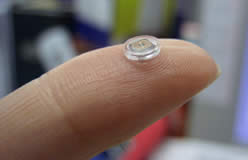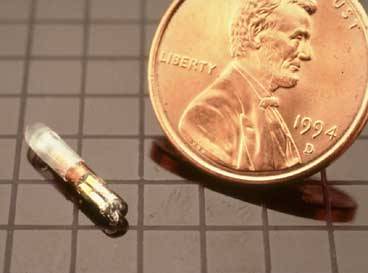Vai in macchina? Ti becco!
da TELEMATICS JOURNAL
IBM Telematics to Catch Speeders
April 18, 2005 | 10:53 AM
IBM’s new four-year deal, expected to be announced this week, will link tens of thousands of vehicles in a nationwide wireless network by the end of 2006—the largest application of telematics ever, IBM claims. The initiative is designed to combat the abnormally high rate of traffic-related deaths in the Persian Gulf state of the United Arab Emirates.
Under the terms of the deal, IBM’s telematics device and global position system will provide information on a vehicle's location and speed to government agencies. Early prototypes for the tracking device are comparable to an airplane's "black box."
The United Arab Emirates’ five-year goal is to cut its 38 per 100,000 people accident-related fatalities in half, said Michael Nelson, an IBM director of Internet technologies strategy. In comparison, the U.S. has 15 deaths per 10,000 people, while Sweden's rate is six.
If a driver exceeds the speed limit, a warning will be transmitted to the individual car via an on-board speaker. Autos will also be equipped with screens and voice-recognition software to access services planned for the future, IBM said.
There are concerns among consumer advocate and privacy groups worldwide who fear the deal may set a dangerous precedent for “Big Brother” activity in other governments leading to a continuous government monitoring of private actions worldwide. Corporations, on the other hand, welcome the deal as a harbinger of new marketing opportunities. The data gathered by the IBM devices can be used by commercial companies to offer consumer-related services such as rental car and hotel services. Insurance companies may also use the data to compute premiums based on actual driver performance.
IBM Telematics to Catch Speeders
April 18, 2005 | 10:53 AM
IBM’s new four-year deal, expected to be announced this week, will link tens of thousands of vehicles in a nationwide wireless network by the end of 2006—the largest application of telematics ever, IBM claims. The initiative is designed to combat the abnormally high rate of traffic-related deaths in the Persian Gulf state of the United Arab Emirates.
Under the terms of the deal, IBM’s telematics device and global position system will provide information on a vehicle's location and speed to government agencies. Early prototypes for the tracking device are comparable to an airplane's "black box."
The United Arab Emirates’ five-year goal is to cut its 38 per 100,000 people accident-related fatalities in half, said Michael Nelson, an IBM director of Internet technologies strategy. In comparison, the U.S. has 15 deaths per 10,000 people, while Sweden's rate is six.
If a driver exceeds the speed limit, a warning will be transmitted to the individual car via an on-board speaker. Autos will also be equipped with screens and voice-recognition software to access services planned for the future, IBM said.
There are concerns among consumer advocate and privacy groups worldwide who fear the deal may set a dangerous precedent for “Big Brother” activity in other governments leading to a continuous government monitoring of private actions worldwide. Corporations, on the other hand, welcome the deal as a harbinger of new marketing opportunities. The data gathered by the IBM devices can be used by commercial companies to offer consumer-related services such as rental car and hotel services. Insurance companies may also use the data to compute premiums based on actual driver performance.


